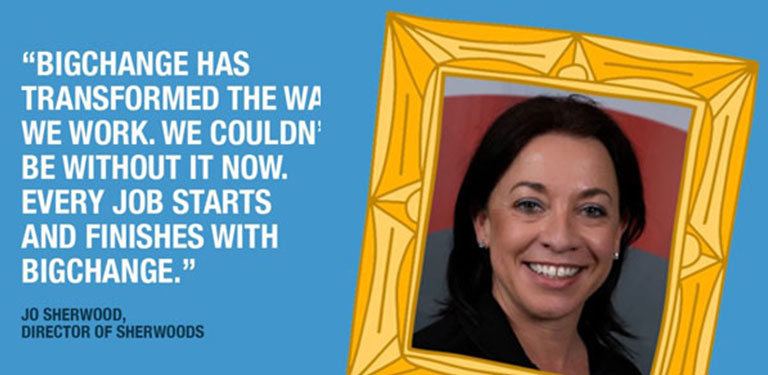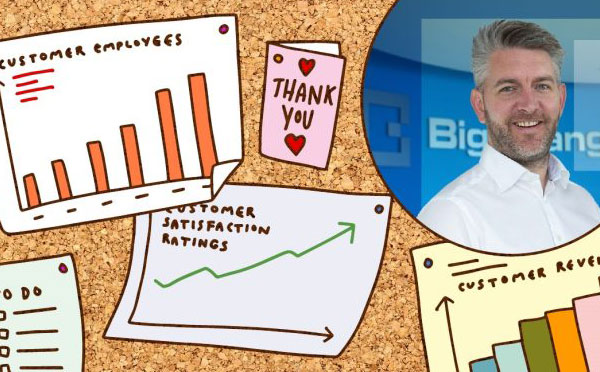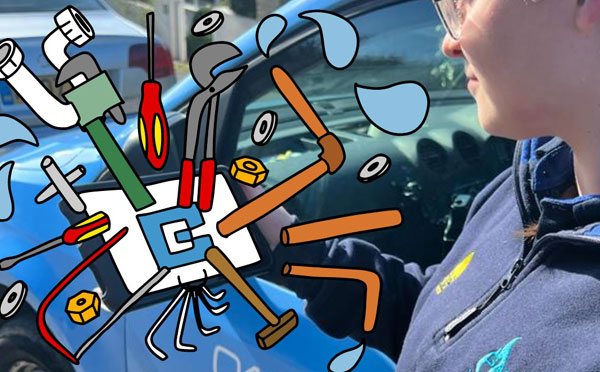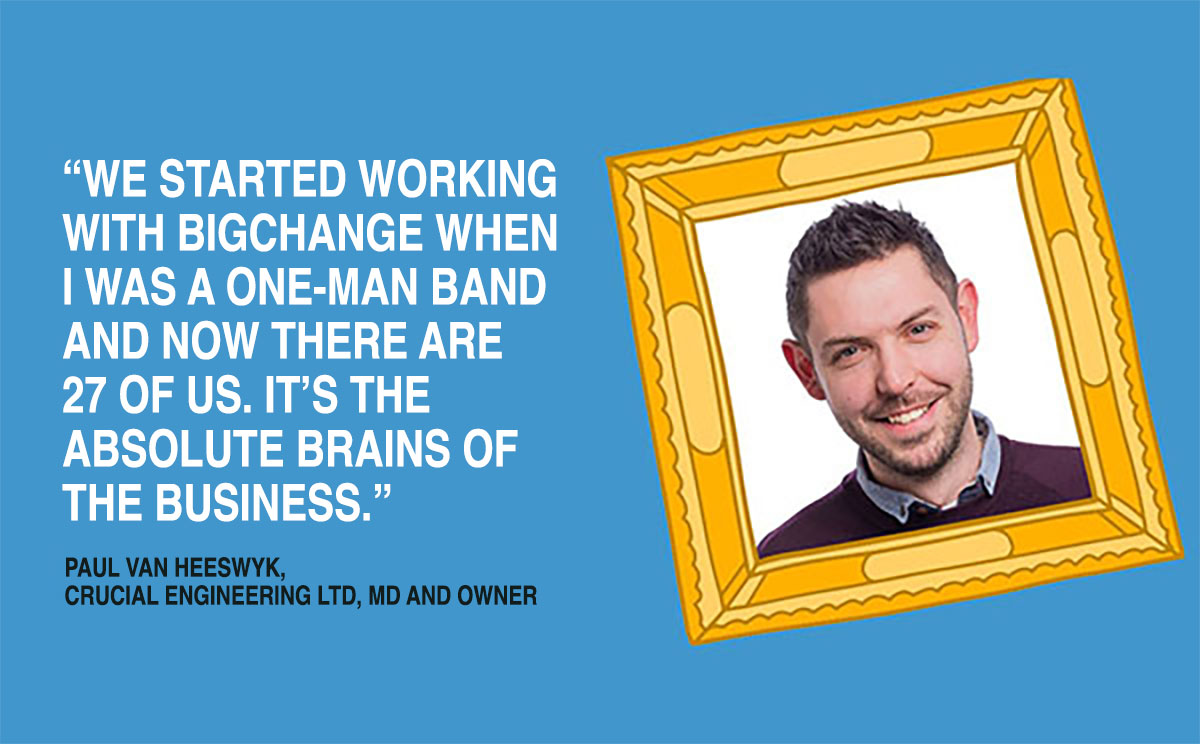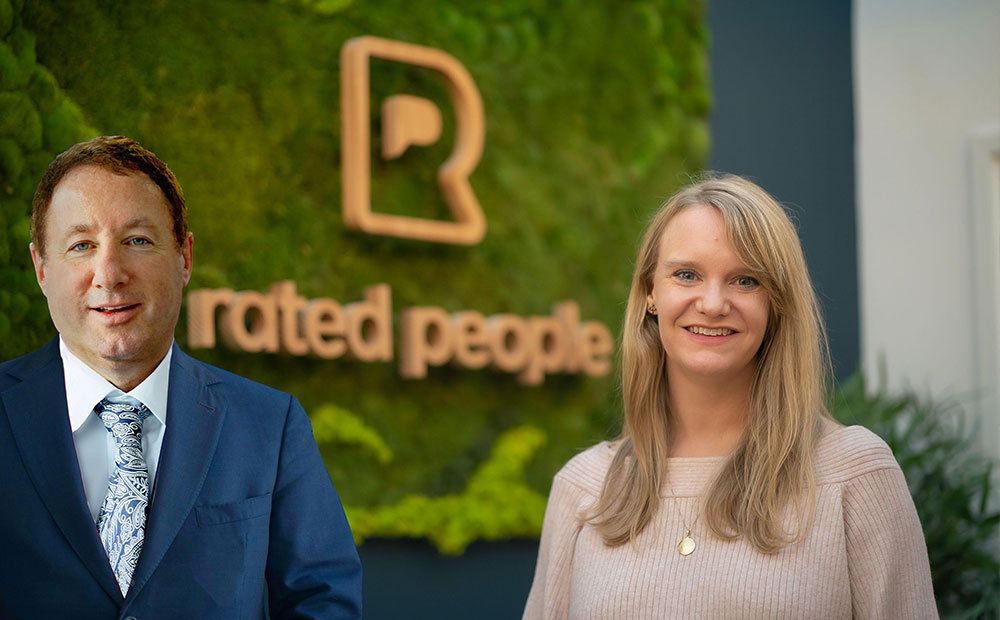So many of the nation’s small businesses hold fascinating stories just waiting to be told. One of these is the history of Sherwoods, which has become one of the most admired firms in its sector, serving big-name customers all across the Southwest.
This month’s Chairman’s Spotlight is on Jo Sherwood, finance director of the fast-growth firm. She has helped grow Sherwoods from just 15 people to 111, and from a local electrical services provider to a fully-fledged building services facilities management company.
I first met Jo in the early days of BigChange. Sherwoods is run by four outstanding individuals: Jo, her husband Kev, whose father founded the company, Kevin Wiltshire and Jamie Bonner. Kevin W and Jamie started as apprentices in the business and have worked their way up to board level. It was Jamie who first saw the value in BigChange, and the whole team has worked with us over the years to help hone our offering. I’m so grateful to the team for their insight, recommendations, and feedback over the years.
I caught up with Jo to find out how her team has grown the business and the secrets to their success. It all started in 1970 when Kev’s father Mike Sherwood created Sherwoods as an electrical business in Torquay, South Devon. Kev had no intention of joining the business. He did an electrical apprenticeship at another firm! But when Mike decided to join Sir Chay Blyth on a year-long yacht trip around the world, he asked Kev to come and manage Sherwoods in his absence.
“Kev had no experience, he was in his early twenties, and it was during a recession, but he said he would give it a go,” says Jo. “He did such a good job that when his dad came back, he asked him to go into partnership.” In 2003, Jo and Kev were married, and she joined the business. “I started off doing a part-time admin job but, two years later, I was full-time finance director.” Jo has learned everything on the job, achieving her Association of Accounting Technicians’ level 3 qualification around the time she spent growing the business (and raising a family).
“When you are running a business, you have to live and breathe it,” she says. “When I went into hospital in 2005 to have my firstborn, I gave birth on the Sunday night, and Kev came back the next morning and I was there in my hospital bed doing the sub-contractors wages to make sure they got paid!”
Here are Jo’s five top tips for growing a successful family firm.
1.) Invest in your team – culture is everything!
“Our mission is to become the facilities management building services partner and employer of choice across the Southwest region, and we can only achieve this by continuously investing in our people.”
2.) Support your suppliers and clients
“When the first lockdown was announced, I pulled off our debtors’ report and saw we were owed £1.2m. I thought it was all over. But we worked closely with our customers and suppliers to make sure we all survived. We had a policy whereby when we were paid, we would pay as many people as we could, so everyone had some cash flow coming in. It was amazing to see everyone pull together and we built some really strong relationships during that difficult time.”
3.) Bring in new perspectives
“One of the best decisions we ever made was to bring other people into the business. When it was just Kev and I, it could sometimes be difficult. Being husband and wife and business partners, there was not always a clear way to resolve disagreements. But Jamie and Kevin W have grown with the business, they know our culture and how we do things. They now sit on the board and between us, we always find the best solution for the business. We even have heated debates! But we never fall out because we are all committed to Sherwoods.”
4.) Use BigChange
“BigChange has transformed the way we work. We couldn’t be without it now. Every job starts and finishes with BigChange. We cover a lot of the Southwest – it’s one of the hardest regions to cover as a contractor – but BigChange gives us the tools to do it efficiently.”
5.) Keep diversifying
“We are always looking for ways to spread our risk and a great way to do that is through diversification. That’s how we have become a one-stop shop, starting with electrical and then adding mechanical, and then onto a full FM service. We have also diversified into providing compliance services and planned maintenance for a range of clients. During the pandemic, shops, restaurants, medical facilities, and hotels needed to stay compliant and had we not diversified into that area, our challenges would have been significantly greater.”
I have such respect for Sherwoods’ commitment to its customers, colleagues and suppliers. I hope that you are as inspired by their story as I am. Check back soon for my next Chairman’s spotlight!

